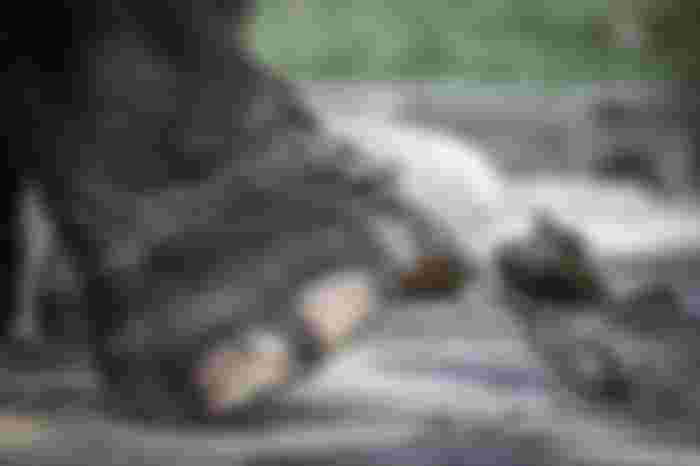There are countless positive aspects to travel, and they are not unknown to anyone. But the number of negative aspects of travel has been growing at almost the same rate over the past few years. Environmental pollution, destruction of wildlife habitats, disruption of wildlife reproduction, destruction of historical monuments, snatching, rape, murder, deception, nothing is left out. But the most ruthless of these is the inhumane lifestyle of animals trained and used by humans to entertain tourists.
Almost all kinds of animals including elephants, dolphins, whales, monkeys, tigers, bears, sloths, snakes, camels are being used to attract tourists to different countries of the world. Tourists are also interested and happy in this system. Taking pictures with family tigers, feeding tiger cubs, entertaining dolphins, feeding dolphins, riding elephants, bathing in mud with elephants, collecting pictures of elephants, watching monkeys dance, taking pictures with sluggish laps - all these are 'quality tie' for tourists. , 'Great Holiday' etc. The best way to meet the quota. Needless to say, the circus. Undoubtedly, it is a matter of pride for parents to give their children the opportunity to come in contact with wildlife in the vicinity of 'nature' by keeping their smartphones away from computer games. But is it really possible to be so proud of participating in this type of tourism?

In June 2019, Natasha Daly, staff writer and editor of Nation's Geographic Magazine, and Kirsten Luce, a freelance photographer from New York, published a report based on experiences and results gained from nearly a year of travel and research around the world. This report reveals the brutal reality of what kind of inhumane life wildlife has to lead in the name of ‘wildlife tourism’ in different countries of the world. They had to do a lot of spying to make this report!
Matman Elephant Adventure, located in the northern province of Chiang Mai, Thailand, is a popular tourist destination around the world. Numerous tourists who get off the bus come here every day to complete their journey by pressing on the back of an elephant, holding a trunk and floating in the air and taking pictures. There are also various activities for the entertainment of the tourists including elephant drawings, watching the elephants throwing extra large size balls, elephant jumping to the beat of the instrument. But to do all this, each mahout has to work by hitting or intimidating his elephants with a kind of stick with a metal thorn. Even baby elephants are trained to stand on their own two feet, with rings on their legs so that if they do anything ‘unruly’, they will cause themselves trouble.

These elephants are trained in all these entertainments from the age of a few months. These elephants have been feeding this type of entertainment for decades. Then, after ten years, they enjoy the tourists on their backs. This is how most of their lives are spent. At the age of 55 or 75, these elephants retire from work. Then either death, or with the help of luck, the last time of life can be a chance to roam freely in the forest. Elephants are supplied for entertainment all over the country from the village of Ban Tha Klang in Thailand. And the elephants are trained in all those inhuman ways in the method called 'Fajang'.
What exactly are parents teaching their children by participating in such entertainment as conscious people? And not only with the family, but also selfie-loving tourists are regularly participating in these activities without considering anything to make their social media profile more attractive to the followers. The more ‘likes’ a picture of that place, the more publicity of that place. As a result, the demand for such cruel entertainment increases. And if there is a demand, supply must also be given. So, this cruel act on wildlife continues with more enthusiasm.

The only fault of the tourists here is that they encourage all these activities without doing enough research. Although they enjoy this entertainment because of their love for animals, they inadvertently become the cause of the suffering of their favorite animals. It is a pity that despite knowing the real thing, many tourists participate in this entertainment. However, the interesting thing here is that there are different arrangements for such tourists as well as conscious tourists. In Eco Valley, another Matman organization, conscious tourists see elephants bathing in the mud with great joy. But these same elephants are in charge of these two parks at different times. That is, although the type of tourist is different, there is no difference in the suffering of wildlife.
Numerous such examples can be seen in this research report by Natasha and Kirsten. The Russian circus has a system for showing polar bear dances on an ice-covered deck with a wire fence wrapped around its mouth. Amazon has a system for tourists to take selfies with sloths. The sloths do not get enough sleep to entertain the tourists after being picked up from the forest, the sloths need to sleep most of the day. Those sloths die in a very short time due to insufficient sleep.

In Thailand, there is a system of taking pictures by embracing the tiger. To prepare for such a picture, the tigers' claws were removed and they were given medicine to relieve fatigue. Even more frightening is the fact that such pictures taken with tigers are in fact tiger cubs. At a very young age, all these tigers are given birth through ‘speed breeding’. Instagram's emerging 'influencer' photographers spend up to money to photograph a bear in Russia.

In several countries, including the United States and Russia, whales and dolphins have been captured from the sea and used to entertain visitors at various water parks. In all these cases the workplace of these animals is nothing more than a small pond or pond. So the suffering is easily conceivable. In this type of entertainment, parents feel that their children are happy. Some other countries, such as Russia and Indonesia, have traveling oceanariums.
In this system, whales and dolphins are captured by filling a box with water and arrangements are made to visit different areas. People who have never seen the sea in their lives are overwhelmed by it. But it doesn't take much intelligence to think about the mental and physical well-being of an animal roaming the infinite sea after being trapped in a box.

To be used in such ‘training’ and recreational activities, these animals have to suffer not only physically but also mentally. As a result, they are always depressed. Even in the case of diseases of animals used for these purposes, adequate treatment is not provided. Natasha's report found swollen gums due to decay at the base of a tiger's tooth at a recreation center in Thailand. But there is no treatment. In almost the same situation, an elephant was seen with a bruise on its head, and a swollen leg due to infection.
Different countries are officially enforcing and enforcing laws against hunting and capturing other animals, including dolphins and whales. There are also laws for proper care of animals used for recreation. Elephant riding has recently been banned as part of tourism in Cambodia's largest park. But due to fraudsters and smugglers and above all unaware tourists, no significant positive change has been noticed yet.

Such unconsciousness is also indirectly and directly responsible for the extinction of the wildlife concerned. According to a recent report in Cond ‘Nast Traveler India, about 80 per cent of the world's wildlife has been killed in the last 45 years due to human activities. But if wildlife becomes extinct in order to feed human interest or entertainment, then how will people know about wildlife and how will they protect themselves and wildlife?
Where there is a problem, there is always some solution. The first thing you need to do is to act as a conscious citizen by suppressing your selfishness. In addition to adhering to the rules laid down by the government, there is much that can be done for an educated person to protest and resist any violation of the rules, to make the next generation aware of the need to protect wildlife and forests, and to solve many of these problems. And if you want to come in contact with wildlife, National Geographic is advised to follow the following rules:
1. One-two-star reviews should be given more importance than four-five-star reviews when it comes to reviews about different safari parks or similar amusement parks on major travel websites, as there are many objectionable issues to be covered.
2. It is also important to find out how the animals are being reared in such parks, whether there are proper food-water-treatment-rest arrangements.
3. Whether a wild animal is being forced for any kind of recreational work, whether there are scars on the body of any animal, etc. should be carefully checked.
4. Parks that are usually overcrowded should be avoided or visited when the crowds are low, ensuring both physical and mental well-being for the animals.
5. Rather than artificial recreation in circuses or parks, wild animals should be visited in their own natural environment, so that the next generation can be properly taught about wildlife.

As soon as the tourists themselves become aware, all these cruel artificial entertainment are bound to stop. Wildlife was not created to draw pictures, play ball, model for photos, dance in circuses, or display itself in boxes. So enjoy the journey according to the natural rules of nature.
Thanks for reading this article for so long.
If you like it Upvote Can give.








Hey , heart touching article ✌️ . Keep writing . I love animals